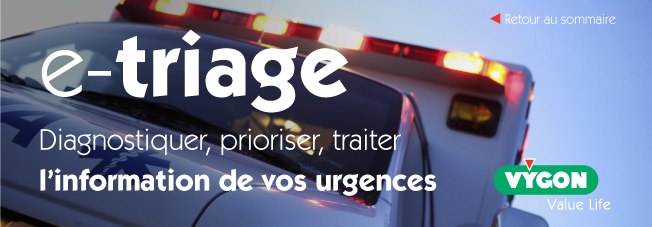Ils ont fait l’histoire de la médecine d’urgence
Parmi les leaders d’opinion qui ont marqué l’histoire récente de la médecine d’urgence, et plus spécialement celle de la prise en charge de l’Arrêt Cardiaque, le Pr Jerry Nolan se distingue par sa rigueur scientifique et la qualité de ses travaux.
Rencontré lors d’un congrès, il a fort gentiment accepté de communiquer dans e-triage.
Nous laissons volontairement en anglais l’entretien qu’il nous a accordé.
(1)
Une vie consacrée à la médecine d’urgence et à l’anesthésie
A life dedicated to the emergency medicine and to the anesthesia
Professor Jerry P. Nolan FRCA FRCP FFICM FRCEM (Hon)
Jerry Nolan is a consultant in anaesthesia and intensive care medicine at the Royal United Hospital, Bath, UK and Honorary Professor of Resuscitation Medicine at the University of Bristol, UK. He trained at Bristol Medical School (MB ChB 1983) and undertook anaesthesia and critical care training in the UK in Plymouth, Bristol, Bath and Southampton, and at the Shock Trauma Center, Baltimore in the United States.
Jerry is Chairman of the European Resuscitation Council (ERC), past Chairman of the Resuscitation Council (UK), and the immediate past Co-chairman of the International Liaison Committee on Resuscitation (ILCOR). He received a Lifetime Achievement Award in Cardiac Resuscitation Science from the American Heart Association in 2016. Jerry is Editor-in-Chief of the journal Resuscitation.
Jerry’s research interests are in cardiopulmonary resuscitation, airway management, and post-cardiac arrest treatment – he has authored over 300 original papers, reviews and editorials on these topics. He is currently a co-investigator for two randomised controlled trials in out-of-hospital cardiac arrest in the UK: PARAMEDIC-2 – adrenaline versus placebo and AIRWAYS-2 – igel versus tracheal intubation.
(2)
Des articles qui font tous référence
Five most important papers
1. Nolan JP, Soar J, Cariou A, Cronberg T, Moulaert VRM, Deakin CD, Bottiger BW, Friberg H, Sunde K, Sandroni C. European Resuscitation Council and European Society of Intensive Care Medicine 2015 Guidelines for post-resuscitation care. Intensive Care Medicine 2015;41:2039–2056.
2. Soar J, Nolan JP, Böttiger BW, Perkins GD, Lott C, Carli P, Pellis T, Sandroni C, Skrifvars MB, Smith GB, Sunde K, Deakin CD; Adult advanced life support section Collaborators. European Resuscitation Council Guidelines for Resuscitation 2015: Section 3. Adult Advanced Life Support. Resuscitation 2015;95:100–147.
3. Nolan JP, Soar J, Smith GB, Gwinnutt C, Parrott F, Power S, Harrison DA, Nixon E, Rowan K, on behalf of the National Cardiac Arrest Audit. Incidence and outcome of in-hospital cardiac arrest in the United Kingdom National Cardiac Arrest Audit. Resuscitation 2014;85:987-992.
4. Nolan JP, Ferrando P, Soar J, Benger J, Thomas M, Harrison DA, Perkins GD. Increasing survival after admission to UK critical care units following cardiopulmonary resuscitation. Critical Care 2016;20:219.
5. Nolan JP, Neumar RW, Adrie C, Aibiki, Berg RA, MD, Böttiger B, Callaway C, Clark RSB, Geocadin RG, Jauch EC, Kern KB, Laurent I, Longstreth, Jr WT, Merchant RM, Morley P, Morrison LJ, Nadkarni V, Peberdy MA, Rivers EP, Rodriguez-Nunez A, MD, Sellke FW, Spaulding C, Sunde K, Vanden Hoek T. Post–Cardiac Arrest Syndrome. Epidemiology, pathophysiology, treatment, and prognostication. A Consensus Statement from the International Liaison Committee on Resuscitation; the American Heart Association Emergency Cardiovascular Care Committee; the Council on Cardiovascular Surgery and Anesthesia; the Council on Cardiopulmonary, Perioperative, and Critical Care; the Council on Clinical Cardiology; and the Stroke Council. Resuscitation 2008; 79: 350-79.
(3)
Présent et futur de la prise en charge de l’Arrêt-Cardiaque en 7 questions
Present and future of the care of Cardiac Arrest in 7 questions
e-triage : What are the most important advances during the past 10 years concerning the care of a cardiac arrest?
Dr Nolan: Dispatcher-assisted CPR and public access defibrillation assisted with GPS technology in mobile phones and text alerts to volunteer first responders
e-triage : What is your opinion about chest compression-only CPR?
Dr Nolan: As part of a community response with dispatcher-assisted CPR, I strongly support compression-only CPR. Those who are trained to deliver conventional CPR should continue to do so.
e-triage : And what about continuous chest compression and passive oxygenation?
Dr Nolan: An interesting concept for which we have only observational data. We need prospective randomised data before we can make a firm treatment recommendation.
e-triage : Dr Boussignac proposes a specific device (b-card) to improve oxygenation putting a virtual valve as a resistance to the air-way. What do you think about that idea?
Dr Nolan: The idea is novel and I await prospective clinical data with great interest.
e-triage : In ACLS, which drug do you suggest as a first-line medication? Epinephrine? Amiodarone? Lidocaine? Vasopressine?
Dr Nolan: None of these until we have high-quality data from randomised controlled trials that show better long-term outcomes. Current guidelines recommend adrenaline in non-shockable rhythms and in shock-refractory VF/pVT. Although amiodarone is currently preferred in shock refractory VF/pVT it probably has no advantages over lidocaine.
e-triage: What about targeted temperature in the prehospital setting?
Dr Nolan: We should not use prehospital uncontrolled infusion of cold fluid, especially not before return of spontaneous circulation. We await the results of the PRINCESS trial to determine whether prehospital intranasal cooling is beneficial.
e-triage : What about the future goal to improve survival rate?
Dr Nolan: Increase bystander CPR rates, reduce time to defibrillation by extending PAD programmes, regionalise cardiac arrest care so that post-cardiac arrest interventions and prognostication can be optimised.







